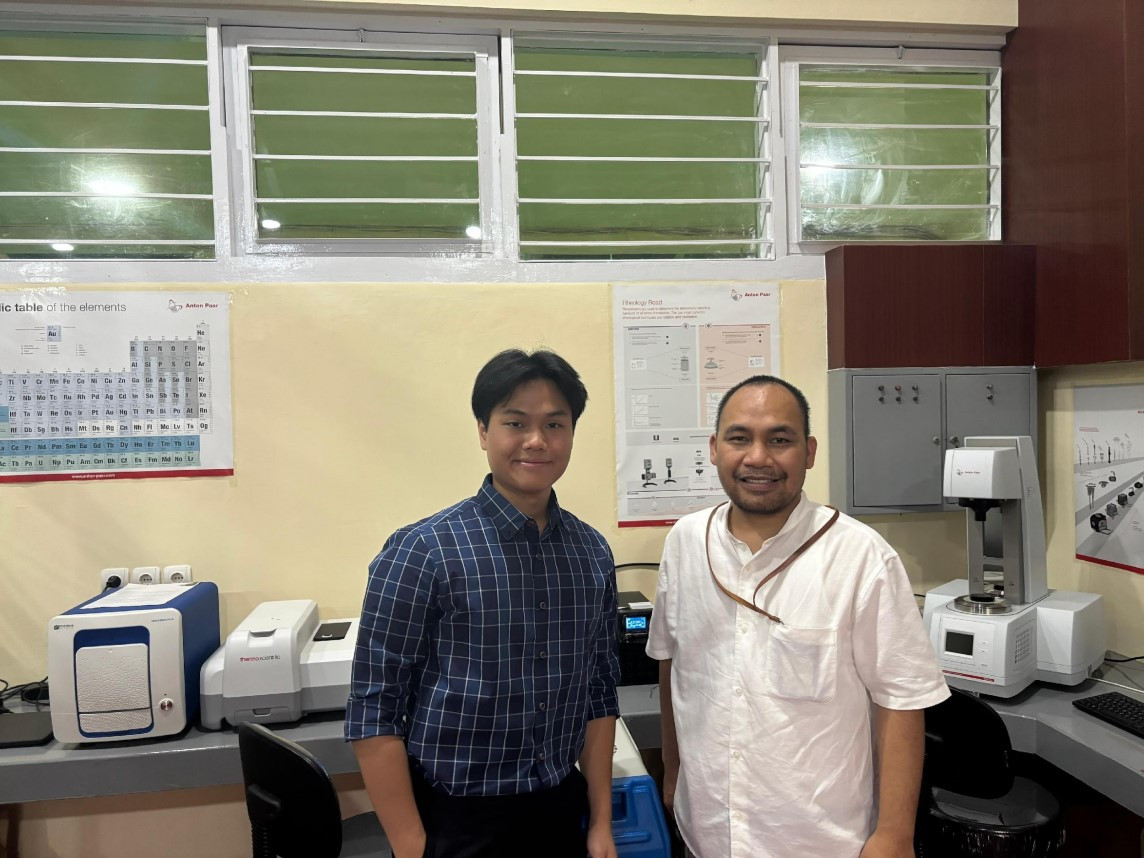Popular Reads
Top Results
Can't find what you're looking for?
View all search resultsPopular Reads
Top Results
Can't find what you're looking for?
View all search resultsWilliam Nathan Atmadja Research Red Velvet Beans as a solution to Diabetes & Malnutrition
Change text size
Gift Premium Articles
to Anyone
A
high school student from Jakarta has discovered the potential use of kacang koro benguk (red velvet beans) as the main ingredient of functional foods used to treat diabetes and malnutrition on a larger scale.
William Nathan Atmadja, a student from the Jakarta Intercultural School, took part in a research study with Azis Boing Sitanggang, the youngest professor from Bogor Agricultural University’s (IPB) Faculty of Agricultural Technology, on the health potential of red velvet beans, which is long known as as a traditional food ingredient in various countries, including Indonesia.
The research focused on the production of bioactive peptides—small protein components that offer health benefits such as including antioxidative, antihypertensive, anti-inflammatory, and antidiabetic properties.
Although bioactive peptides have significant potential, their development and commercialization are often hampered by the limitations of efficient production methods on an industrial scale.
The innovation developed by William is billed as a breakthrough in addressing the limitation.
"Through Enzymatic Membrane Reactor (EMR) technology, we have found a method that enables the consistent and efficient production of bioactive peptides from red velvet beans on an industrial scale. With optimal timing, this process is able to maximize bioactive activity without sacrificing production efficiency,” William explained.
The study showed that short-term bioactive peptide production can be done for seven hours, while for long-term production, the optimal residence time is 12 hours. This method successfully produced peptides with high antioxidant activity, which is very important in the management of diabetes and overall health.
Led by Azis, the research group has succeeded in producing peptides with various main functional activities, including as inhibitors of enzymes related to blood pressure regulation and diabetes, as well as antioxidants that function to protect body cells from oxidative damage.
In addition, the hydrolysis process of red velvet bean protein also opens up opportunities to produce free amino acids that can be utilized to meet the body's needs, which is especially crucial for malnourished individuals.
According to Azis, the research has great potential in increasing the added value of local agricultural products in Indonesia.
“Through the production of bioactive peptides, this research can make a real contribution to public health in line with the increasing trend of functional foods, where food not only acts as a source of nutrition, but also as a health supporter,” he said.
Azis further explained that the use of EMR technology in the production of bioactive peptides is a key innovation. As the process is carried out continuously, he continued, the process in turn has high productivity and allows various scale-up parameters to be identified.
As a mentor to William, Azis saw extraordinary potential in William as a young researcher who conducted the research and demonstrated the feasibility of the EMR system developed for adoption on an industrial scale.
"William shows extraordinary enthusiasm, fast learning, and high work commitment. These are characteristics that make him an ideal example for other young Indonesians to find their passion early and contribute to national development through research and innovation," he said.
In addition, William's research also opened up opportunities for collaboration between academics and the food industry in developing red velvet bean-derived products that can positively impact public health as well as the economy by increasing the value of local agricultural products.
The research will be presented at the ISoFoST conference at IPB University in late October, where William is expected to attract more attention from the industry to support further development.
William believes that red velvet beans have significant potential as a solution to health problems such as diabetes and malnutrition.
"With the right collaboration, I am optimistic that the development of functional foods based on bioactive peptides from red velvet beans can be accelerated, so that the resulting health and economic benefits can be felt by the wider community," he concluded.
Source: Mayora











